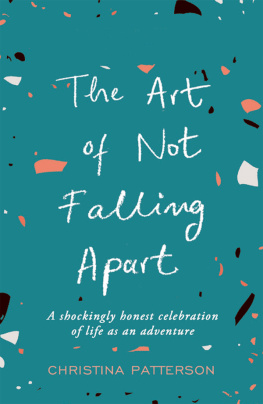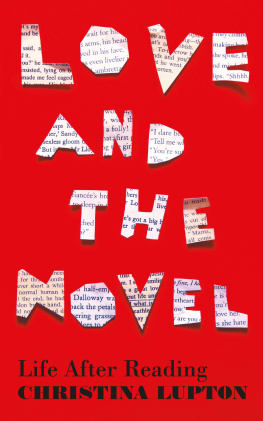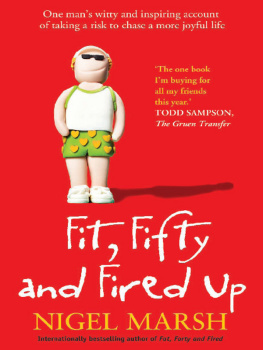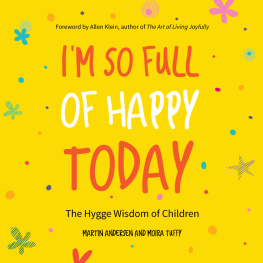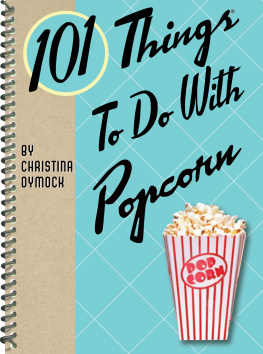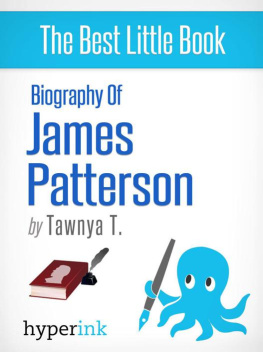Contents
Guide
The Art of Not
Falling Apart
The Art of Not
Falling Apart
Christina Patterson

First published in trade paperback in Great Britain in 2018 by Atlantic Books, an imprint of Grove Atlantic Ltd.
Copyright Christina Patterson, 2018
The moral right of Christina Patterson to be identified as the author of this work has been asserted by her in accordance with the Copyright, Designs and Patents Act of 1988.
All rights reserved. No part of this publication may be reproduced, stored in a retrieval system, or transmitted in any form or by any means, electronic, mechanical, photocopying, recording, or otherwise, without the prior permission of both the copyright owner and the above publisher of this book.
This is a work of non-fiction, but some names and details have been changed.
Every effort has been made to trace or contact all copyright-holders. The publishers will be pleased to make good any omissions or rectify any mistakes brought to their attention at the earliest opportunity.
Atlantic Books Ltd considers the quotes included within this text to be covered by the Fair Dealing definition under the Copyright, Designs and Patents Act 1988, and as subsequently amended. For more information, please contact Atlantic Books Ltd.
Born Yesterday, from The Less Deceived (1955), by Larkin, Philip, published by The Marvell Press. Reproduced by permission of Faber & Faber Ltd.
10 9 8 7 6 5 4 3 2 1
A CIP catalogue record for this book is available from the British Library.
Trade paperback ISBN 978 1 78649 274 6
Ebook ISBN 978 1 78649 275 3
Printed in Great Britain
Atlantic Books
An imprint of Grove Atlantic Ltd
Ormond House
2627 Boswell Street
London WC1N 3JZ
www.atlantic-books.co.uk
In fact, may you be dull
If that is what a skilled,
Vigilant, flexible,
Unemphasised, enthralled
Catching of happiness is called.
Philip Larkin,
Born Yesterday
Contents
Prologue
I was writing up an interview when I got the call. Five minutes later, I felt as if I was falling off a cliff. The letter had been bad enough. The letter had used words like synergies and integration, and the synergies, it said, would reduce costs. The letter had been followed by a meeting with a young blonde from HR who talked about consultation while she gazed at her nails. But now what the man in front of me was saying didnt seem to make any sense at all. When I asked him to explain, he started fiddling with his pen. Youll have, he said, to see the editor.
When I walked into the editors office, he was hunched behind his desk. Something about his mouth made it clear he was raring for a fight. I had, I told him, accepted the synergies, but I had been promised a contract to sugar the pill. Now the promise seemed to have been broken and I didnt understand what was going on. The editor, who is fat and bald and looks as though he should be wearing a nappy, stared out of the window as he told me that he had decided to freshen the pages up.
Its quite hard to swallow when the boss has just made it clear that your older, male colleagues are still fresh, but you are not. I tried to keep my voice steady as I told the editor that readers liked my work. I told him that I couldnt have worked much harder. I told him that I had given ten years loyal service to the paper and I did not deserve to be treated like this.
Now the editor looked at me and his cold, grey eyes made me think of a fish. And what, he said, and he seemed to be smiling as he said it, is so special about you?
When someone asks you why youre special, there isnt really anything you can say. You could, I suppose, say that some people think youre special, but it isnt easy to say that to someone whos looking at you as if youre a stain on the carpet they would like to blast with bleach.
I told him that I didnt like his tone. I told him that I didnt like the way he was treating some of the senior women on his staff. The editor looked away and then back at me. He said I didnt know what I was talking about. I was surprised to hear myself shouting that I did. And then he threatened to call security. This big bull of a man actually threatened to call security.
When I walked out of the office, for the last time, after ten years, nobody even looked up.
I always dreamt of being a journalist, but never seriously thought I could be. I grew up in a family of teachers and public servants and was brought up to believe that saying you wanted to write for a living was very much like saying you wanted to be a punk. At university, I had vague dreams of sitting on a frontline, looking like Martha Gellhorn, bashing out pieces that spoke truth to power. But the only things I wrote, as dawn broke and the birds in the college grounds shattered the silence of the night, were essays about alliteration in Sir Gawain and the Green Knight or the use of allegory in The Faerie Queen.
I was thirty-eight, and running a small arts organization called the Poetry Society, when I got a call from the literary editor of The Independent, saying that his deputy was leaving and asking if I wanted to apply for the job. I had been reviewing books for the national papers since I was twenty-six, but had given up all dreams of journalism as anything other than a sideline to a full-time job. I loved my job, and my colleagues, and I also quite liked being the boss. But I knew that if I wanted to work on a national paper, this was my chance.
A newspaper, my new boss told me, was like a medieval fiefdom. At first I didnt understand what he meant. In the arts world, bosses pretended to be interested in getting the views of their staff. In the arts world, you got sent on courses on diversity and talked about things like continuing professional development. I once even got sent on a course to learn the Alexander Technique. I thought it was very nice of the taxpayer to let me lie with my head on a cushion, allowing my neck to be free.
Newspapers were not like this. On a newspaper, or at least on my newspaper, no one cared about your continuing professional development. You didnt get training for anything except IT. There was only really one item on your job description: do whatever the hell your boss says. On the books desk, we would sweat over each semi-colon and piece together the pages as if they were the fragments of a Ming vase. At five oclock on press day, the deputy editor would stroll down to look at the proofs. He would glance at the pages, grab his pen from his pocket and slice it through the air as if it was a machete hovering over a neck. When he handed the proofs back, we would gaze at the marks like gashes on the pages and wonder how to salvage something from the wreck. My boss said it was just willy waving, but dealing with willies seemed to be quite a big part of the job.
When I moved upstairs, to be an editor on the comment desk, I learnt more about stress. It started with the tension in the faces of the section editors as they tried to put together their morning list. A list on a newspaper isnt like a list you write on a notepad, where you might or might not tick some of the items off. A list on a newspaper is a miracle you have snatched out of air. You have got up, you have listened to the Today programme, you have read, or at least flicked through, all the papers, and tried to grasp the latest developments on quantitative easing in the Euro-zone and the Nigerian governments shift in policy on Boko Haram. You have strained every neuron in your brain to put together a list of ideas that will make editors on other papers feel sick that they didnt come up with them first. But when you see the editors PA opening the door to his office, you know that there is only one view that counts.

